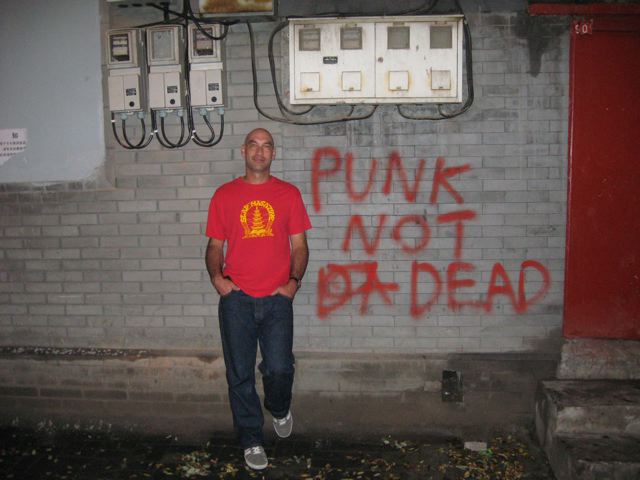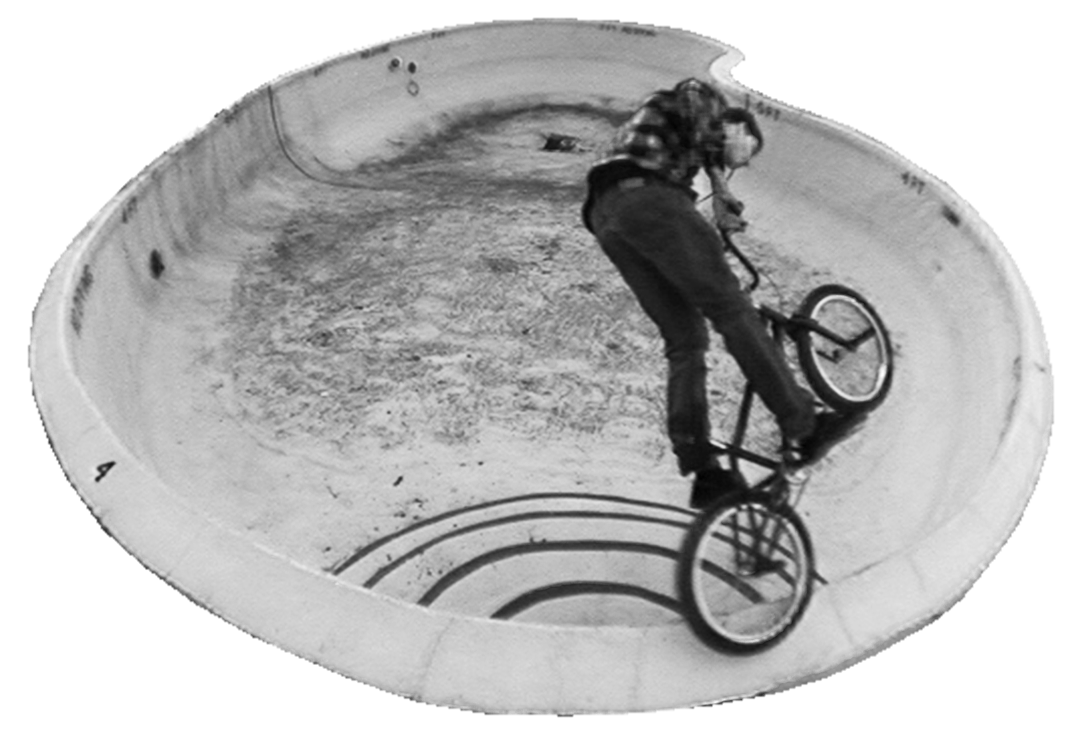
Does History Matter in Youth Culture? One Long-Winded Question With Jocko Weyland
by Nick Ferreira
Jocko Weyland in Beijing China

Dustin Stier by Alex Duleba.
This has nothing to do with this article but it did run next to it in the issue.
Challenger:
In your book, The Answer is Never: a Skateboarder's History of the World, you discuss an idea that much ink has been spilled on: How much history should kids care about, especially in cultures like BMX and skateboarding, which are both ultimately youth cultures. I could be wrong but your ideas feel similar to mine: yes it's important kids know where this stuff came from but also, let them do their thing. You wrote:
"If the pain and sentimentalizing that invariably accompany nostalgia are one outcome, it's a risk worth taking. In the face of historical amnesia, I had to show that the present didn't spring from nothing."
but a few paragraphs later you also say:
"And then there's the problem of history. For many skaters, the history of their own pastime is boring, and that's a good thing, because too much reverence for the past hinders the innovation that skating thrives on."
Like most things in life, it seems to me that this stuff isn't black and white but rather a gray area. Your book also came out in 2002, before the internet and its role as an instant nostalgia machine became what it is today. What are your thoughts on the subject today?
Jocko Weyland
Very gray. My attitude from the time of the book’s writing and publication, 1998-2002, has been unrecognizably altered by what you so aptly call the “instant nostalgia machine.” Though I’m not getting down on myself because nobody then had any clue about the coming omnipresence of the internet and social media. In that period skateboarding history was the wheelhouse of active participants in that narrative, an oral tradition, slapdash, full of gaps, with many unexplained omissions and mysteries. Uncharted territory, to some degree, and that it was not known to the general public made it exciting, arcane, and liberating, as well as fragile and ephemeral. That’s why I wanted to tell the story, before all that got lost, and set it down as important (at least to me) unexplored social and cultural history. Which I tried to do, in an admittedly biased and personal fashion.
At the time there was a dearth of “knowledge” about earlier eras, and because of that there was an imperative “to show that the present didn't spring from nothing." Now thanks to relentless excavation of what happened in the past every single frame of every roll of film is scanned and disseminated, from the driveway ¼ pipe in 1978 to 1 x 2 inch ads for cell blocks, available in the blink of an eye and literally inescapable with platforms or whatever they are like Instagram having attained an all-pervasive status verging on infrastructure. So my feeling is that presently there’s way too much “history,” and like everything with the Internet it’s trivialized and diminished by overexposure. Now that bygone days are charted and “shared” incessantly in a massively narcissistic self-referential species-wide undertaking, the scales have tipped from scarcity to obscene overabundance. Oppressive, for everyone but especially for “the kids today.” Who knows though, maybe, against the odds, there’s a way for them to find a sane balance between the importances of “where this stuff came from,” but also, yes, do their thing. ︎
In your book, The Answer is Never: a Skateboarder's History of the World, you discuss an idea that much ink has been spilled on: How much history should kids care about, especially in cultures like BMX and skateboarding, which are both ultimately youth cultures. I could be wrong but your ideas feel similar to mine: yes it's important kids know where this stuff came from but also, let them do their thing. You wrote:
"If the pain and sentimentalizing that invariably accompany nostalgia are one outcome, it's a risk worth taking. In the face of historical amnesia, I had to show that the present didn't spring from nothing."
but a few paragraphs later you also say:
"And then there's the problem of history. For many skaters, the history of their own pastime is boring, and that's a good thing, because too much reverence for the past hinders the innovation that skating thrives on."
Like most things in life, it seems to me that this stuff isn't black and white but rather a gray area. Your book also came out in 2002, before the internet and its role as an instant nostalgia machine became what it is today. What are your thoughts on the subject today?
Jocko Weyland
Very gray. My attitude from the time of the book’s writing and publication, 1998-2002, has been unrecognizably altered by what you so aptly call the “instant nostalgia machine.” Though I’m not getting down on myself because nobody then had any clue about the coming omnipresence of the internet and social media. In that period skateboarding history was the wheelhouse of active participants in that narrative, an oral tradition, slapdash, full of gaps, with many unexplained omissions and mysteries. Uncharted territory, to some degree, and that it was not known to the general public made it exciting, arcane, and liberating, as well as fragile and ephemeral. That’s why I wanted to tell the story, before all that got lost, and set it down as important (at least to me) unexplored social and cultural history. Which I tried to do, in an admittedly biased and personal fashion.
At the time there was a dearth of “knowledge” about earlier eras, and because of that there was an imperative “to show that the present didn't spring from nothing." Now thanks to relentless excavation of what happened in the past every single frame of every roll of film is scanned and disseminated, from the driveway ¼ pipe in 1978 to 1 x 2 inch ads for cell blocks, available in the blink of an eye and literally inescapable with platforms or whatever they are like Instagram having attained an all-pervasive status verging on infrastructure. So my feeling is that presently there’s way too much “history,” and like everything with the Internet it’s trivialized and diminished by overexposure. Now that bygone days are charted and “shared” incessantly in a massively narcissistic self-referential species-wide undertaking, the scales have tipped from scarcity to obscene overabundance. Oppressive, for everyone but especially for “the kids today.” Who knows though, maybe, against the odds, there’s a way for them to find a sane balance between the importances of “where this stuff came from,” but also, yes, do their thing. ︎